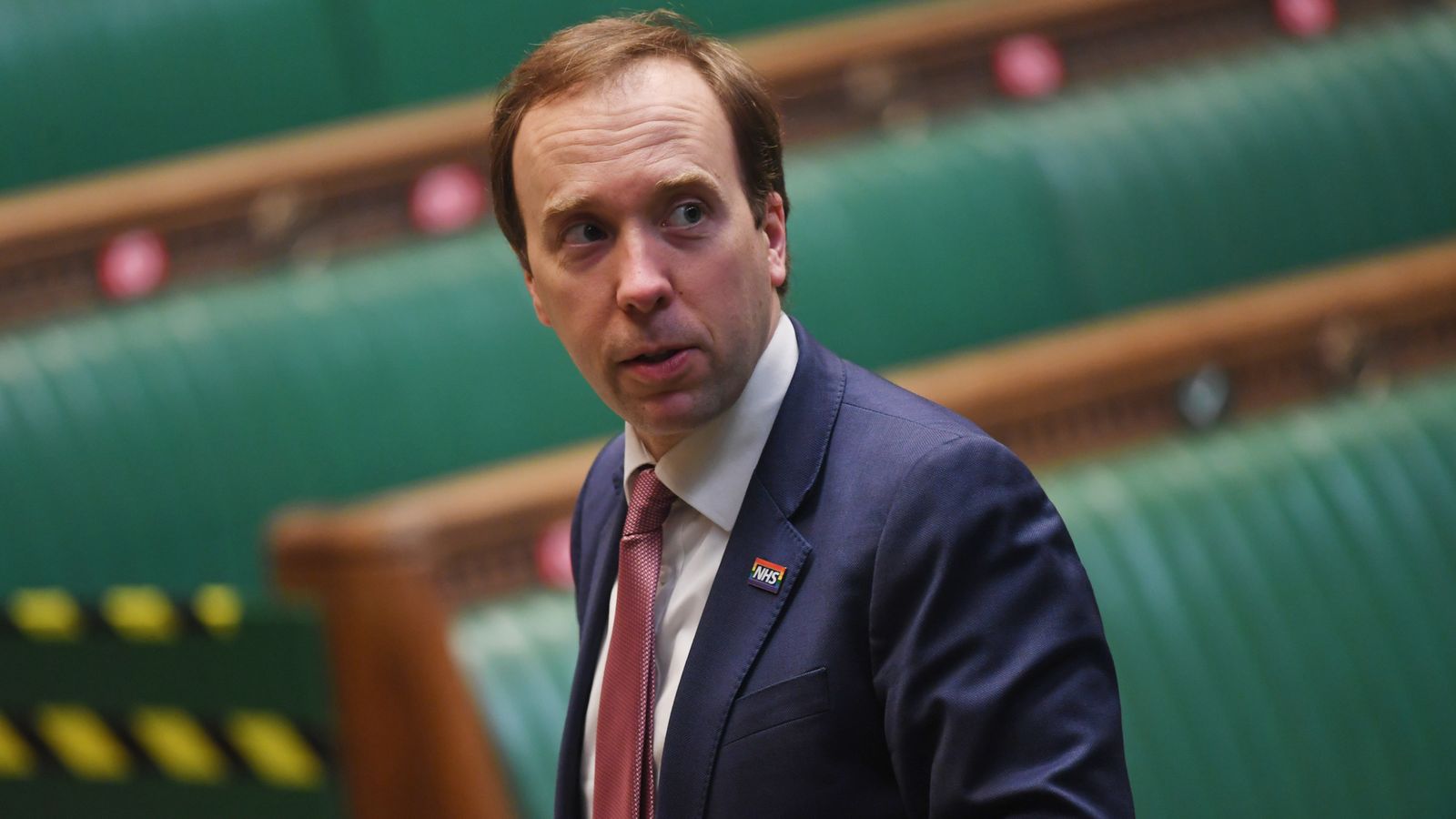MPs have voted to extend the government’s emergency COVID legislation for another six months.
Despite opposition from some Tory backbenchers, the Coronavirus Act 2020 was passed by 484 votes to 76, a majority of 408, with Labour supporting the government.
MPs also approved the regulations underpinning the steps to ease restrictions from 29 March as laid out in Boris Johnson’s roadmap out of lockdown.
The Coronavirus Act was fast-tracked through parliament in four days in March 2020 to bring in emergency powers to respond to the pandemic as the UK went into its first lockdown.
Its temporary measures have to be reviewed then renewed every six months.
The extension until September does not mean restrictions will definitely continue until then, with the government hoping to lift all restrictions by 21 June.
The emergency powers include allowing the emergency registration of healthcare professionals such as nurses, the power to temporarily close schools and prevent tenants from being evicted.
One of the main issues of contention was extending police and immigration officials’ powers to remove people who are suspected of having COVID-19.
The power to prohibit or restrict events and gatherings on public health grounds was also another sticking point for many MPs.
Health Secretary Matt Hancock told MPs ahead of the vote: “I cannot answer whether we will be retiring it in six months. My preference would be yes, but given the last year, I think a prediction would be hasty.”
He said extending the act was a path to freedom.
Many MPs – including about 60 Conservative backbenchers – are against the extension as they believe it is “excessive and disproportionate”, Steve Baker, deputy chairman of the COVID Recovery Group of lockdown-sceptic Tory MPs, said.
The act was described as “draconian” by several MPs ahead of the vote.
Former chief whip Mark Harper, who leads the COVID Recovery Group, said the “extraordinary provisions” should expire “at the earliest possible opportunity”.
Mr Harper – and several other MPs – said they were particularly concerned about police being handed powers to detain potentially infectious people, which he said have been used unlawfully in the past year.
The Lib Dems voted against the extension, with leader Ed Davey telling the Commons: “Some parts of the act are needed but that’s not justification for renewing all of them.”
On the morning of the vote, Mr Johnson said: “The libertarian in me is also trying to protect people’s fundamental right to life and their ability to live their lives normally.
“And the only way really to restore that for everybody is for us to beat the disease and the best path to freedom is down the cautious but irreversible road map that we’ve set out – that’s what the freedom lover wants.”






















